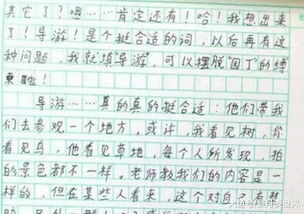在什么情形下跟condition用什么介词(situation搭配的介词)
- 漫画
- 2022-12-18 11:14:19
- -
常用in或under,在一些固定搭配中用on,比如:on condition(that)指的是在某种条件下,相当于only if或provided that.还有on no condition指一点也不,绝不,相当于not at all. under 侧重于外部的条件或影响,如:He works efficiently under stressful conditions;或者用在词组:under the condition (that),多见于美语中,表示做某事的前提条件。
而in侧重于自身所处的状态或呈现出来的特征,如:The machine is in good condition.
英语中on、in、at的用法:
表示时间:
1、用at来表示在某一段时刻:
atdawn/daybreak: 在黎明
atsix :在6点钟
atmidnight :在午夜
at4:30 :在4点30分
用at来表示在……岁时
atsixteen/at the age of sixteen:16岁的时候
2、用on来表示在星期几/某日
onMonday :在星期一
onJanuary fifth:在1月5日
onChristmas Day :在圣诞节那一天 也可用atChristmas
onNew Year's Day:在新年那天
3、用in来表示一天中的早中晚,月份,季节或年份
inthe morning/afternoon/evening在早晨,下午,晚上
inJanuary/February在一月,二月
inSpring在春天
in2014在2014年
表示方位:
1、at (1)表示在小地方; (2)表示“在„„附近,旁边”
2、in (1)表示 在大地方; (2)表示“在„范围之内”。
3、on 表示毗邻,接壤,“在„„上面”。
扩展资料:
介词又称作前置词,表示它后面的名词或代词(或相当于名词的其他词类、短语或从句)与其他句子成分的关系。介词通常位于名词或代词之前。
简单介词:包括in,on,with,by,for,at,about,under,of,to等。
合成介词:包括into,within,throughout,inside,outside,without等
重叠介词
from among 从...当中
from behind 从...后面,
until after 直至...之后,
at about 在大约...,
after about 在大约...之后 等
短语介词:一个或两个简单介词和一个或几个其他词类构成一个短语,作用相当于一个介词,这就叫做短语介词。这类介词的末尾总是一个简单介词。
如 according to,because of,by means of,in addition to,in front of, in spite of,into等。
分词介词:有极少数介词的词尾是“-ing”,形似现在分词(其中也有些可做分词)。常用的有:considering,regarding,respecting,including。
参考资料来源:百度百科-介词
1、“in”后接的都是较长时间:
表示“在某世纪/某年代/特定世纪某年代/年/季节/月”,例句:This machine was invented in the eighteenth century.这台机器是在18世纪发明的。
表示“从现在起一段时间以后”,(in+一段时间表将来),例句:I will be back in a month.我将在一个月后回来。
泛指一般意义的上、下午、晚上,例句:Don't watch TV too much in the evening.晚上看电视不要太多。
另外,当morning, evening, afternoon被of短语修饰,习惯上应用on, 而不用in.但若前面的修饰词是 early, late时,虽有of短语修饰,习惯上应用in, 而不用on。
2、“on” 后接的时间多与日期有关:
表示“在具体的某一天”或 (在具体的某一天的)早上、中午、晚上”,或“在某一天或某一天的上午,下午,晚上”等,例如:They left on a rainy morning.他们是在一个雨天的早上离开的。
表示“在星期几”或“在星期几的早上、中午、晚上”等,例如:I heard this story on Saturday morning.我是在星期六的早晨听到这个故事的。注意:“在周末”: at weekends, on weekends.
on the weekend, at the weekend加了定冠词the, 是特指的那个周末,表示某个固定的周末;on weekends, at weekends是一般性的每个周末。
表示“在某一节假日、生日”,例如: on my birthday,注意: at, on都可用来表示“节假日”,但at侧重指“休假的时节”,而不是指具体的哪一天;on侧重指具体的时日,与它连用的短语中多含“Day”。
3、“at” 后接的时间最短:
表示“某一具体时刻(即几点几分时)”时,用于钟点时刻前,例如:He gets up at six o'clock every day.他每天六点起床。
用在特定的时候(时节、时机),表示一瞬间或短暂的时间,例如:They were happy at that time.他们那时很幸福。at that moment(在那一瞬间) at that time(那时)。
用于表示进餐时间。例如:at breakfast/lunch/supper:在早餐时/午餐时/晚餐时。
表示“在……岁”,例如:At the age of nine ,the boy could swim well.在九岁的时候,这孩子就游泳游得很好了。
表示“在中午、在夜晚、在周末”时,须用介词at。例如:You can see many stars in the sky at night.夜晚你能看到天空中有许多星星。
扩展资料:
另外省略介词的情况 :
1、next, last, this, that与时间名词连用作状语时,该短语前常省略介词。例如:We’re going to work on a farm next Sunday.下个星期天,我们要去农场劳动。
today, tomorrow, yesterday, the day before yesterday, the day after tomorrow, tomorrow night等之前不用任何介词。例如:Are you free tomorrow night?明晚你有空吗?
inprep.在 ... 里, 在 ... 地方, 在 ... 期间, 在 ... 方面, 进入...里面, 处于...状态, 穿着..., 以...的方式
adv.在家, 入, 进, 向里, 在某地, 并入, 在某种关系中
adj.在里面的, 新来的, 执政的, <口>时髦的
n.当权者, 影响, 达成目标的路径
at
prep.在;向;以;处于;因为;从事
in与at的比较:用于地方时,at指较小的地方,如指城镇时,in指较大的地方,用于省、国家、大陆前。国际大都市前用at 和in都有,但在London前通常用in。在指说话人的住处时要用in,且一般in表示实在的存在,而at却不是。说到某大城市的某大建筑物,往往在大城市名称的前面用at,如the Pantheon at Rome。说到商店、机关、学校等,假使看作一个地点(point)用at。假使看作一个场所(place)用in,the barber's (理发店),Green's (Green所开的店)等前面只用at,不用in。说到门牌用at,如live at 1184 Zhongshan Road,路名前面该用in,而说“在……路口”用at;
on
prep.
在...之上, 依附于, 临近, 靠近, 向, 在...时候, 关于, 涉及
adv.
在上, 向前, 行动中, 作用中
on 一般为在什么之上,只有表达在什么之上时用on。另外星期几之前和具体到某日的日期之前用on.不过日期前的on常被省略。
The People's Republic of China was established (on) 1 October, 1949.
希望可以帮到你 on+星期 / 具体某一天
in+年 / 月 /季节/早中晚
at +几点钟
长在树上的东西在树上用on, 东西落在树上,人在树上时用in
门窗洞在墙上用in, 黑板,画等挂在墙上用on
希望能帮助到你,祝学习愉快! 指年和月时,用介词 in
In 与月份,季节,年份及一天的某些时间段连用。
He was born in 2007.
He made his first song in July.
I get up early in the morning.
指日期时,用on
On与天、日期和节日连用
He was born on January 8th (the 8th of Jan.).
Their wedding anniversary is on 25th May.
on Mother's Day
指时间时,用at
He arrived at the meeting at 10:30am.
We met in a restaurant at 6 o'clock in the evening.
at night/midnight/lunchtime
at the age of ...
总结:
in + year
on + date
at + time 一.
(1) at表示一天中的某时刻,不用冠词,如:
at six o'clock(在六点钟), at dawn(在黎明), at sunrise(日出时), at noon(在正午)。
I arrived at school at seven.
我到学校时是七点。
(2) at表示一瞬间或短暂的时间,如:
at that moment(在那一瞬间),
at present(目前),at that time(那时)。
Your memory is always poor at this time.
你的记忆力到这时候总是不好。
(3) at表示节日或年龄,如:
at Christmas(在圣诞节,指整个节日), at the age of ten(在十岁时)。
How could you be so forgetful at the age of ten?
你才十岁怎么就这么健忘?
二.
on表示某日或和某日连用的某一时间段,如:
on Monday(在星期一), on Friday afternoon(在星期五下午), on the morning of August the eighth(在八月八日早晨), on Christmas Day(在圣诞节,指在当天)。
You were late on Monday last week.
你上星期一就晚了。
You mean I was late on May the fifteenth?
你是说我五月十五日晚了?
三.
in表示年、月、季节、世纪、时代,与定冠词连用表示一天中某个时间段,如:
in 1996(在1996年), in May(在五月), in spring(在春季), in the 20th century(在二十世纪), in the eighties(在八十年代), in modern times(在现代), in the night(在晚上)。
Sorry, I am late, the first time in May.
对不起,我晚了,五月份第一次晚。
I got up at six in the morning.
我早上六点钟起床。
表示时间的介词有以下:
1. On
-Days of the week 一周中的某一天
E.g. On Monday 在周一
-Calendar dates日历日期
E.g. On 17th/On 17th May
-‘Special days’特殊日子
E.g. On my birthday在我生日那天/on my wedding anniversary在我结婚纪念日那天
2. In
-Months/Seasons 月份、季节
E.g. In January在一月/in winter在冬季
-Year/Decade 年度、年代
E.g. In 2013在2013年/in the 1980s在80年代
-Period of the day 一天中的某一时段
E.g. In the morning在早上/in the afternoon在下午
-After a certain period在某一时段后
E.g. In two hours在两小时后/in a few minutes在几分钟后
3. At
-‘Night’ 晚上
E.g. at night在晚上 (而非’in the night’)
-‘weekend’ 周末
E.g. at weekends 在周末 (’on weekends’也是对的)
-A precise time精确的时间
E.g. The staff meeting is at 9:30 员工会议九点半开始。
4. (From…) to
-Marking a period of time 标记一段时间
E.g. From Monday to Friday 从周一到周五
-Telling to time 钟点表达
E.g. Twenty (minutes) to five 五点差二十
5. Past
-Telling the time 钟点表达
E.g. Half past eight 八点半
6. Till/until
-Marking a period of time 标记一段时间
E.g. From Monday till/until Wednesday 从周一到周三
-Marking how long 标记时间长短
E.g. We are working on this till/until June. 我们将持续着手这件事情一直到六月。
(1) at表示一天中的某时刻,不用冠词,如:at six o'clock(在六点钟), at dawn(在黎明), at sunrise(日出时), at noon(在正午)。
I arrived at school at seven.
我到学校时是七点。
(2) at表示一瞬间或短暂的时间,如:
at that moment(在那一瞬间),
at present(目前),at that time(那时)。
Your memory is always poor at this time.
你的记忆力到这时候总是不好。
(3) at表示节日或年龄,如:
at Christmas(在圣诞节,指整个节日), at the age of ten(在十岁时)。
How could you be so forgetful at the age of ten?
你才十岁怎么就这么健忘?
二.
on表示某日或和某日连用的某一时间段,如:
on Monday(在星期一), on Friday afternoon(在星期五下午), on the morning of August the eighth(在八月八日早晨), on Christmas Day(在圣诞节,指在当天)。
You were late on Monday last week.
你上星期一就晚了。
You mean I was late on May the fifteenth?
你是说我五月十五日晚了?
三.
in表示年、月、季节、世纪、时代,与定冠词连用表示一天中某个时间段,如:
in 1996(在1996年), in May(在五月), in spring(在春季), in the 20th century(在二十世纪), in the eighties(在八十年代), in modern times(在现代), in the night(在晚上)。
Sorry, I am late, the first time in May.
对不起,我晚了,五月份第一次晚。
I got up at six in the morning.
我早上 切记有修饰前必用on,考试基本就差不多了 at 表示节日年零
本文由作者笔名: 于 2022-12-18 11:14:19发表在本站,原创文章,禁止转载,文章内容仅供娱乐参考,不能盲信。
本文链接:https://www.e-8.com.cn/mh-3229.html

















